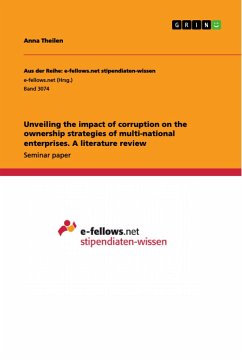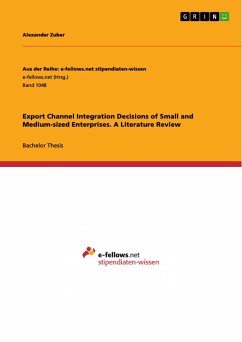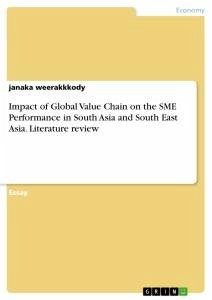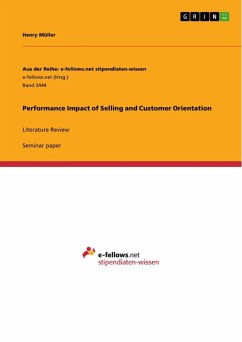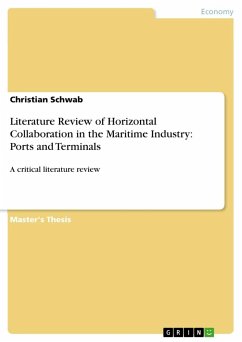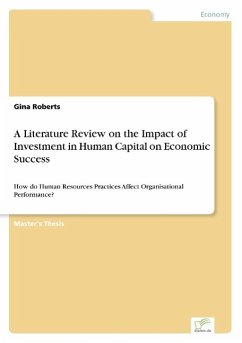Seminar paper from the year 2019 in the subject Business economics - General, grade: 1,7, , language: English, abstract: The phenomenon of globalization has increased the international business operations of multi-national enterprises (MNEs) and especially the growth in emerging economies makes it likely that companies are confronted with the issue of corruption (Uhlenbruck, Rodriguez, Doh & Eden, 2006).Furthermore, as MNEs are more and more internationalising, they have to decide on entry strategies as it is an important factor for the success of the MNE (Di Guardo, Marrocu & Paci, 2016; Duanmu, 2011, Baena, 2011). Therefore, there are many different firm-level as well as country-level factors, which have to be considered (Uhlenbruck et al., 2006). Globermann and Shapiro (2003) stress that an effective macro-level 'governance infrastructure', which includes the absence of corruption, is a vital point for the willingness of foreign MNEs to invest (as cited in Rugman & Verbeke, 2010). Therefore, corruption is an important country-level aspect (Uhlenbruck et al. 2006, Baena, 2011).The Corruption Perception Index 2017 shows that the majority of the 180 countries and territories ranked have not been able to end corruption in the last years (Transparency International, 2018). For the index a scale of 0 to 100 is used, where 0 refers to high corruption and 100 to no corruption. Experts and business people give scores to the countries according to their perceived levels of public sector corruption, resulting in two-thirds of the countries scoring below 50. The average score of these countries is 43. Even below this average score is the region Sub-Saharan Africa (average score 32), but also Eastern Europe and Central Asia (average score 34) (ibid.).Corruption is thought to be prevalent in emerging economies (Hellman, Jones, Kaufmann, & Schankerman, 2000; as cited in Petrou & Thanos, 2015). This explains that there is many literature, which focuses on corruption in these countries (Baena, 2011; Duanmu, 2011; Godinez & Liu, 2015; Jiménez, Russo, Kraak & Jiang, 2017; Karhunen & Ledyaeva, 2012; Uhlenbruck et al., 2006). But, there are also articles which deal with corruption in general as corruption is present in all countries, only differing by the degree (Petrou & Thanos, 2015).
Hinweis: Dieser Artikel kann nur an eine deutsche Lieferadresse ausgeliefert werden.
Hinweis: Dieser Artikel kann nur an eine deutsche Lieferadresse ausgeliefert werden.

